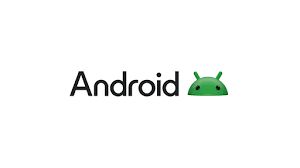The World of Android
Android is an operating system designed primarily for touchscreen mobile devices such as smartphones and tablets. Developed by Google, Android has grown to become the most popular mobile operating system in the world.
One of the key features of Android is its open-source nature, which allows developers to customize and modify the software according to their needs. This has led to a vast ecosystem of apps, games, and services available on the Google Play Store.
Android offers a user-friendly interface with customizable home screens, widgets, and notifications. It also provides seamless integration with Google services such as Gmail, Google Maps, and Google Drive.
With each new version of Android, Google introduces innovative features and enhancements to improve performance, security, and user experience. From voice commands with Google Assistant to advanced camera capabilities and augmented reality experiences, Android continues to push boundaries in mobile technology.
Android is not limited to smartphones and tablets; it has expanded into other devices such as smartwatches, smart TVs, and automotive systems through initiatives like Wear OS and Android Auto.
As the mobile landscape evolves, Android remains at the forefront of innovation, empowering users with a versatile platform that caters to their digital needs. Whether you’re a tech enthusiast or a casual user, Android offers a diverse range of options to enhance your digital lifestyle.
Understanding Android: Common Questions Answered
- Is Google an Android phone?
- Which phone does Android mean?
- Who owned Android before Google?
- Why Android is better than iPhone?
Is Google an Android phone?
The frequently asked question, “Is Google an Android phone?” often stems from confusion regarding the relationship between Google and the Android operating system. To clarify, Google is not an Android phone itself; rather, Google is the company behind the development of the Android operating system. Android is a mobile operating system that powers a wide range of devices, including smartphones and tablets. While Google does produce its own line of smartphones under the Pixel brand that run on the Android OS, it is important to distinguish between Google as a company and Android as an operating system that is utilized by various manufacturers in their devices.
Which phone does Android mean?
The question “Which phone does Android mean?” often arises due to a common misconception. Android is not a specific phone model but rather an operating system developed by Google for a wide range of mobile devices. Android powers various smartphones and tablets from different manufacturers such as Samsung, Google, LG, and many others. It serves as the software platform that enables these devices to run apps, access the internet, and perform a multitude of functions. So when people refer to “Android phones,” they are typically talking about smartphones that run on the Android operating system, offering users a diverse selection of devices with different features and capabilities.
Who owned Android before Google?
Before Google acquired Android Inc. in 2005, the ownership of Android was in the hands of its founders, Andy Rubin, Rich Miner, Nick Sears, and Chris White. Android Inc. was a startup company focused on developing a mobile operating system with a vision to revolutionize the way people interacted with their smartphones. The acquisition by Google marked a significant milestone in the history of Android, paving the way for its integration into the tech giant’s ecosystem and eventual rise to become the dominant mobile operating system worldwide.
Why Android is better than iPhone?
When comparing Android to iPhone, one key aspect that often stands out is the level of customization and flexibility that Android offers. Android devices allow users to personalize their experience with customizable home screens, widgets, and a wide range of apps from various sources. Additionally, Android devices come in a variety of models and price points, offering more options to suit different preferences and budgets. The open-source nature of Android also fosters innovation and diversity in hardware design and software development. Overall, the freedom to tailor the user experience to individual preferences is a significant reason why some users may find Android preferable to iPhone.
Tags: android, apps, customization, developers, ecosystem, games, gmail, google, google drive, google maps, google play store, google services, innovative features, mobile devices, open-source, operating system, performance, security, smartphones, software, tablets, user experience, user-friendly interface
